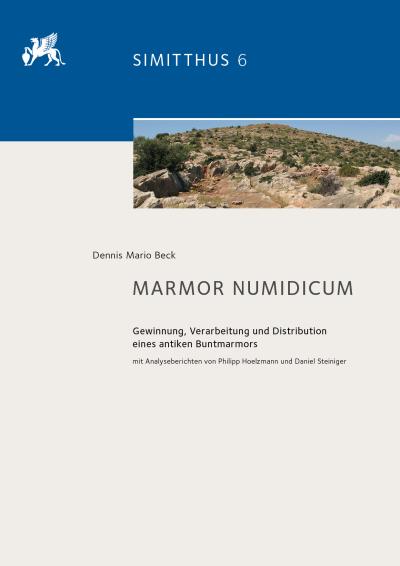Simitthus
In Simitthus/Chemtou, northwest Tunisia, the oldest settlements date back to at least the 4th century BC. In Augustan times, a colonia was set up here, which marked the beginning of large-scale marble extraction under imperial domain. The city's prosperity in the High Imperial period was followed by a period of prosperity under the Severans and a late antique phase that led to the Vandal and Byzantine periods into the early Middle Ages. Impressive evidence of this long settlement history includes the largest quarry in ancient North Africa, the Hellenistic-Numidian hilltop monument and the pre-Roman necropolis with monumental burial buildings, which has been the focus of research since 2008.
The publication of the results of the German-Tunisian joint excavations in Simitthus, which have been taking place since 1968, with the presentation of individual monuments and groups of finds, takes place in the Simitthus series of the German Archaeological Institute.
Publisher
from volume 4:
Dr. Ludwig Reichert Verlag
Tauernstraße 11
D-65199 Wiesbaden
www.reichert-verlag.de
info@reichert-verlag.de
Volume 1–3:
Verlag Philipp von Zabern GmbH (today part of Verlag Herder GmbH: wbg – Wissen verbindet)
Hermann-Herder-Str. 4
D-79104 Freiburg im Breisgau
www.herder.de
kundenservice@herder.de
Responsible editorial office/editors
Editorial office
Head Office Berlin (Zentrale Berlin)
redaktion.zentrale@dainst.de
Editors
edited by Philipp von Rummel and Mustapha Khanoussi on behalf of the Head Office (Zentrale) Berlin and the Institut National du Patrimoine Tunis
Volumes
Find all volumes in ZENON
All Books





